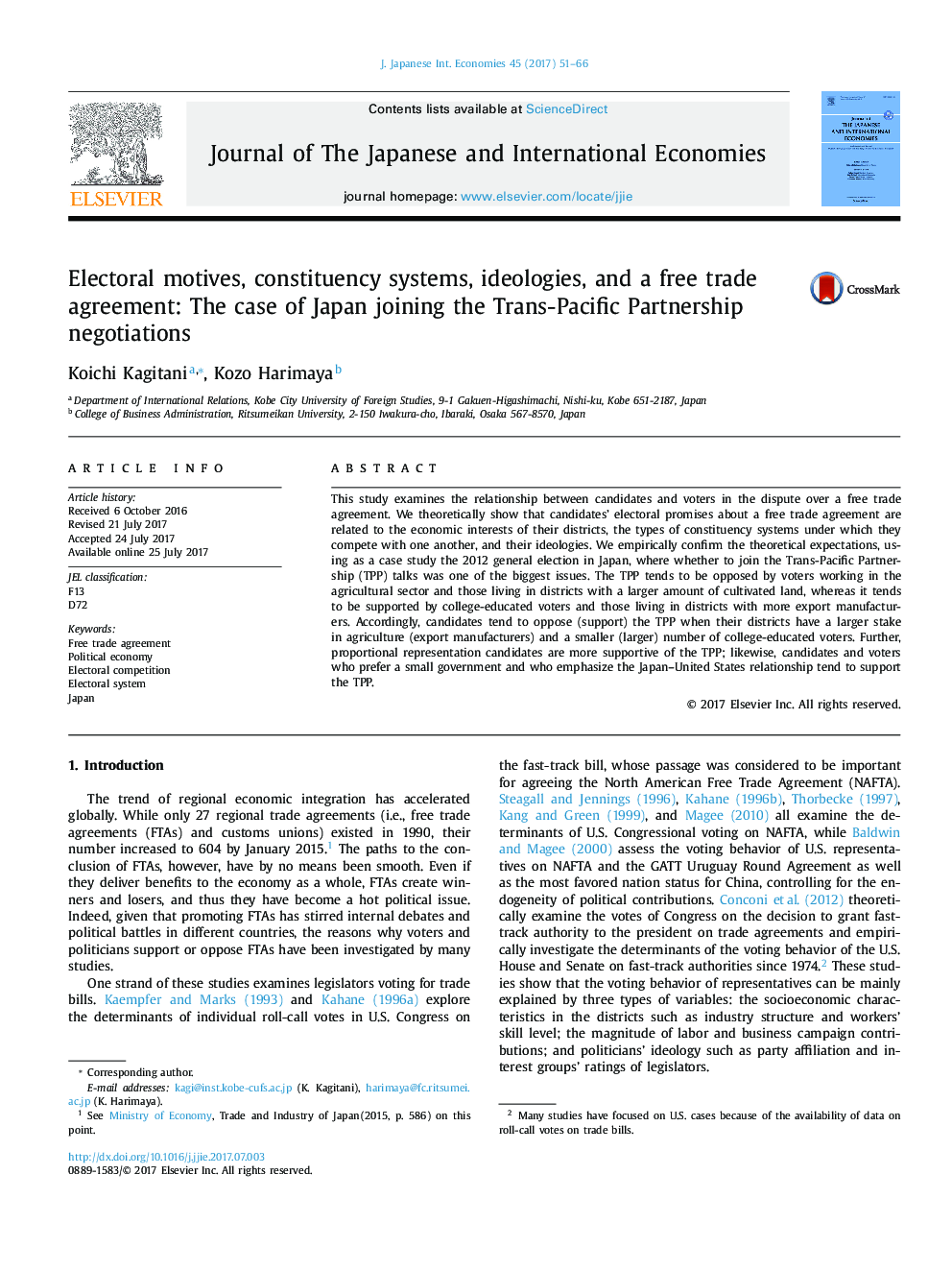| کد مقاله | کد نشریه | سال انتشار | مقاله انگلیسی | نسخه تمام متن |
|---|---|---|---|---|
| 5101246 | 1479192 | 2017 | 16 صفحه PDF | دانلود رایگان |
- We examine electoral pledges and voter opinions on a free-trade agreement (FTA).
- Candidates in import (export) dependent electorates tend to oppose (support) the FTA.
- This is because voter opinions relate to their economic interests from the FTA.
- Election pledges relate to the types of election systems for which candidates run.
- This result can be explained by the differences in constituency size.
- Candidates pledges and voters opinions are also affected by their ideologies.
This study examines the relationship between candidates and voters in the dispute over a free trade agreement. We theoretically show that candidates' electoral promises about a free trade agreement are related to the economic interests of their districts, the types of constituency systems under which they compete with one another, and their ideologies. We empirically confirm the theoretical expectations, using as a case study the 2012 general election in Japan, where whether to join the Trans-Pacific Partnership (TPP) talks was one of the biggest issues. The TPP tends to be opposed by voters working in the agricultural sector and those living in districts with a larger amount of cultivated land, whereas it tends to be supported by college-educated voters and those living in districts with more export manufacturers. Accordingly, candidates tend to oppose (support) the TPP when their districts have a larger stake in agriculture (export manufacturers) and a smaller (larger) number of college-educated voters. Further, proportional representation candidates are more supportive of the TPP; likewise, candidates and voters who prefer a small government and who emphasize the Japan-United States relationship tend to support the TPP.
Journal: Journal of the Japanese and International Economies - Volume 45, September 2017, Pages 51-66
